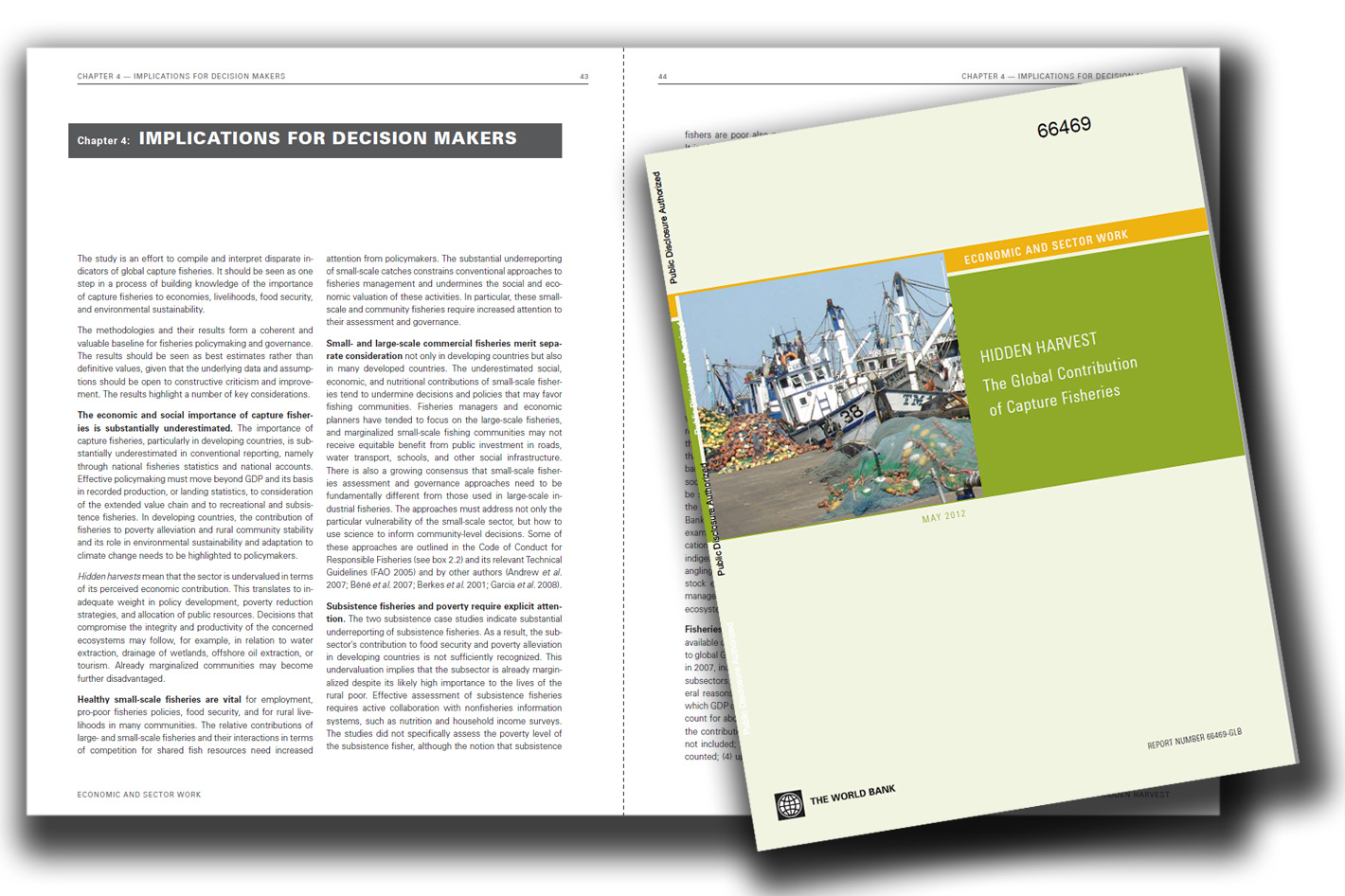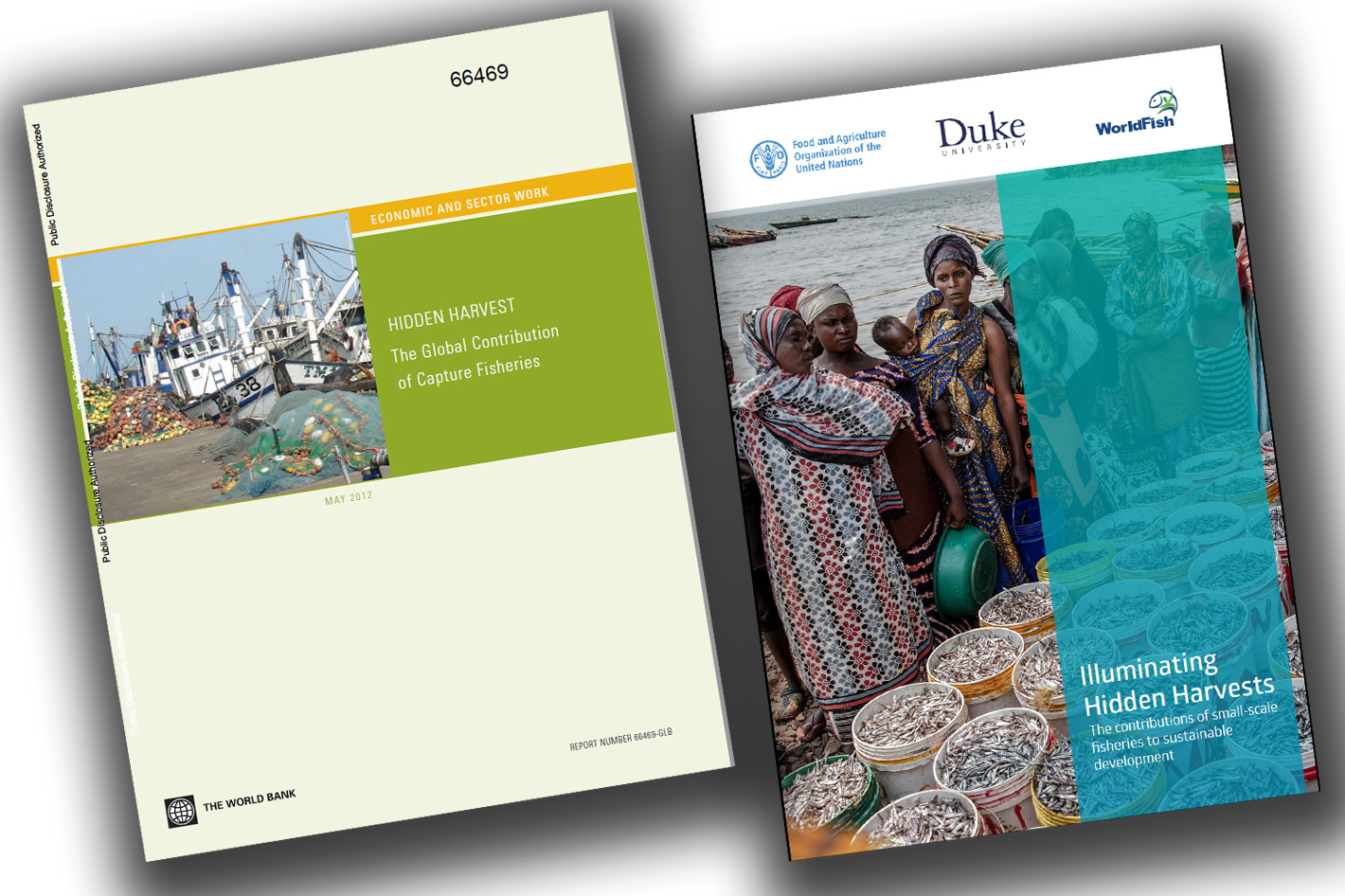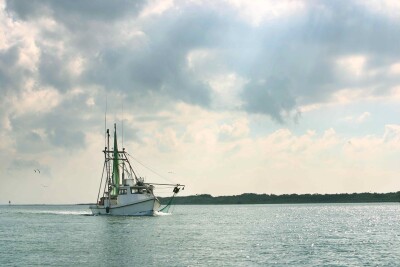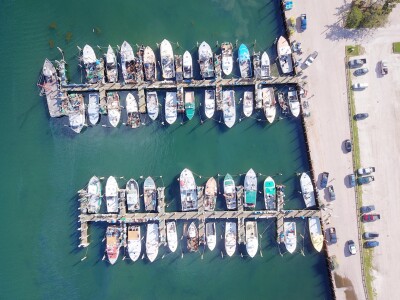If you think of big vessels as the emblem of commercial fishing, think again: small-scale fisheries produce 37 million tons of aquatic foods each year, roughly 40 percent of the global catch, reveals a new report.
Big, industrial vessels operating in the oceans take center stage when we think about commercial fishing, but small-scale fisheries, whose value is often poorly measured and ignored in policy and management decisions, are an important element of any sustainable development project.
A report from 2012, published by The World Bank, revealed “a disaggregated profile of the world's small and large-scale fisheries and an estimate of its direct and indirect contributions to gross domestic product, food security, and rural livelihoods to uncover the hidden importance of the fisheries sector with a view to increasing its economic and environmental contributions in a sustainable manner.”
The “Hidden harvest : the global contribution of capture fisheries” 92-page report revealed the problem that existed one decade ago: “serious information deficiencies that undermine decision makers' understanding of the importance of the fisheries sector” and concluded “that the contribution of the world's fisheries to national and global economies is greater than that generally recognized by decision makers and makes recommendations to reform, inform, and improve data collection regarding capture fisheries.”
A new report, published this month, reveals that the situation is not much different. The study notes that despite the outsized role of the small-scale fisheries, their value is often poorly measured and ignored in policy and management decisions and aims to change that, by contributing to a more holistic understanding of what small-scale fisheries are, their importance, and why they are essential to efforts to achieve the Sustainable Development Goals (SDGs).
 Case studies from 58 countries
Case studies from 58 countries
“Illuminating Hidden Harvests: The contributions of small-scale fisheries to sustainable development” is a 376-page global study uncovering the contributions and impacts of small-scale fisheries through a multidisciplinary approach to data collection and analysis. The study provides information that quantifies and improves understanding of the crucial role of small-scale fisheries in the areas of food security and nutrition, sustainable livelihoods, poverty eradication and healthy ecosystems. It also examines gender equality as well as the nature and scope of governance in small-scale fisheries.
The Illuminating Hidden Harvests (IHH) study was conducted in support of the implementation of the Voluntary Guidelines for Securing Sustainable Small-Scale Fisheries in the Context of Food Security and Poverty Eradication (SSF Guidelines), themselves developed in recognition of the plight of small-scale fishers, fishworkers and associated communities and released as a contribution to the International Year of Artisanal Fisheries and Aquaculture 2022.
Years in the making, IHH details the multifaceted contributions of small-scale fisheries. The report, which drew on an array of existing data sources from the national and international levels and includes case studies from 58 countries, culminates a collaborative research effort led by the Food and Agriculture Organization of the United Nations (FAO), Duke University and WorldFish to better inform governance of these critical resources.
Drawing on the expertise of hundreds of researchers, consultants and government staff from around the world, an interdisciplinary group of more than 800 experts, including a large contingent from Duke University’s Nicholas School of the Environment, Marine Lab and Nicholas Institute for Energy, Environment & Sustainability, the report is aimed at all those with a stake or an interest in the small-scale fisheries subsector, in particular decision-makers who are concerned with fisheries, poverty eradication, food security and nutrition, and sustainable development more generally. It is also addressed to small-scale fisheries actors themselves and those who support them.
 The noble idea of ending poverty
The noble idea of ending poverty
“This report provides perhaps the clearest picture to date of the global importance of small-scale fisheries to sustainable development,” said John Virdin, director of the Ocean and Coastal Policy Program at the Nicholas Institute for Energy, Environment & Sustainability and assistant professor of the practice at the Nicholas School of the Environment. “The data and recommendations in this report can support policy making at all levels and, we hope, empower fishing communities and their advocates to push for productive, sustainable and equitable small-scale fisheries.”
Here are some of the highlights of the new report:
· Small-scale fisheries produce 37 million tons of aquatic foods each year, roughly 40 percent of the global catch.
· In 2016, an estimated 492 million people were at least partially dependent on small-scale fisheries for their livelihoods. The 60 million with full- or part-time jobs in small-scale fisheries account for 90 percent of total fisheries employment worldwide.
· Approximately four of every 10 people engaged in small-scale fisheries through direct employment or subsistence fishing are women.
· Fish are rich in micronutrients that are essential for good health and development.
· Co-management between communities and governments is perceived to be implemented for 20 percent of the small-scale fisheries catch.
Illuminating Hidden Harvests is part of a broader partnership between FAO and Duke to build a scientific evidence base for policy makers to develop strategies and solutions to support small-scale fisheries. This is another example of the Duke strategic vision of building partnerships that address large, challenging issues around the world. Follow the link to read more about how the partnership contributes to, among other things, trying to eradicate hunger and pursue the noble idea of ending poverty, a goal announced by Toddi Steelman, Stanback Dean of the Nicholas School of the Environment, during a virtual event announcing the partnership in October 2020.







